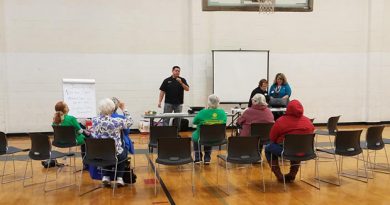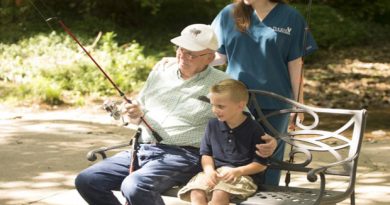Loneliness and Mental Health
What do you do when you are feeling stressed out, sad, distressed, or anxious? If you answered ‘turn to loved ones for support’, you’re not alone. Many of us have a social network we can turn to in times of need, friends and family who we can ask for a hug, a sympathetic ear, or for wise advice.
Humans are social creatures by nature and we generally gravitate towards connecting with others during times of stress. We find a great sense of value and comfort in our connections with others. Each of us has a specialized social brain network that manages our social relationships and interactions with others.
While it’s highly likely that most of us feel loneliness from time to time, chronic loneliness can have serious negative impacts on both physical and mental health. Recent studies on mental health and social engagement show a distinct relationship between mental illness and loneliness. Additionally, there can be a self-perpetuating cycle of symptoms which limits connection and support which can lead to the loss of those supports as protective factors, which can increase mental health symptoms, and so on.
Feelings of loneliness may often be downplayed or dismissed, however studies of brain scans have shown that experiences such as being shunned or excluded by a community, or feeling isolated, activates the same areas in the brain that respond to physical pain. In these cases, the brain enters into a hyper-alert state to prepare for danger (also known as hypervigilance), which can in turn lead to errors in social thinking (that may cause a misinterpretation of the situation or information). Therefore, when someone is experiencing chronic loneliness, they may misinterpret the intentions of others to be unethical, competitive, or threatening.
Having a strong social support network is associated with decreased mortality, a greater resilience to stress, lower levels of depression and anxiety, higher levels of self-esteem, and an enhanced ability to cope with life stressors such as illness, loss, and bereavement. Evidence supports social networks and a sense of connection as important protective factors in protecting and boosting our overall mental health.
Understandably, social interaction and quality social opportunities have been challenging to safely create and maintain during the COVID global pandemic, however it is possible to reduce any loneliness you may be experiencing by trying some of these options that feel safe for you:
- Donate your time towards community service or volunteering, either in-person (COVID safe) or virtually. Giving back to your community can help you feel a sense of purpose and value as well as adding meaning to your life. As a bonus, you may meet some like-minded people to connect and build friendships with.
- Focus on decreasing or alleviating the stress in your life. Loneliness causes our bodies to create more of the stress hormone, cortisol, which increases our feelings of stress. Small things can quickly seem like big things when you are under stress without strong social support. Some healthy stress reduction techniques to try are journaling (writing), making art, meditating, physical exercise, listening to music, singing, or dancing.
- Change your outlook on life. Make the conscious choice to focus on the positives in your life and expect the best from the people you are connected with. Loneliness can alter our thoughts to focus on the negative rather than the positive. Keeping a daily gratitude journal can help reframe your thinking about all of the things, small and large, that you are grateful for. Just five minutes a day can make a huge difference.
- We are what we eat. A clean, healthy diet contributes towards a healthy body and brain. Maintaining healthy habits such as physical exercise, quality sleep or rest, and great electronic/media hygiene helps you feel and stay your best, and helps you keep focused on the positive things in your life.
- We are also what we do and who we spend time with. Focus your time and efforts on building a few strong, healthy, positive friendships with those you connect with. You’ll find far more joy and benefit in a few strong relationships, than many shallow or superficial friendships.
By Michaela Butterworth
Health Promotion Specialist
If you or someone you know is experiencing a mental health emergency, it is important to visit Valeo’s Crisis Center located at 400 SW Oakley Avenue. Valeo’s Crisis Center never closes, it is a walk-in emergency clinic, with no appointment necessary. Valeo’s 24-Hour Crisis Line is 785-234-3300
Valeo Behavioral Health Care
785-233-1730
Crisis Services
400 SW Oakley
Topeka, KS 66606
24 Hour Crisis Line
785-234-3300
National Suicide Prevention Life Line
1-800-273-8255
Shawnee County Suicide Prevention Coalition
Family Service and Guidance Center (18 and under)
325 SW Frazier
Topeka, KS 66606
24 Hour Crisis Number
785-232-5005
Healing after Loss to Suicide Group (HeALS)
Sandy Reams – Group Facilitator
Topeka.Heals@gmail.com
785-249-3792







